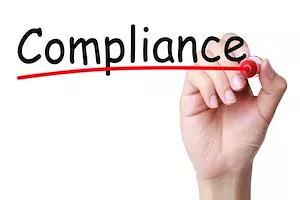Corporate Criminal Liability and Compliance Programs for Corruption Cases
On September 27, 2017, the Senate unanimously approved an amended draft of the bill on corporate criminal liability for corruption cases. The Government presented the original draft of this bill on October 20, 2016 and the House of Representatives approved an amended version on July 5, 2017. The bill has now been submitted to the House of Representatives and is expected to be approved and enacted into law within the next few months.

On October 20, 2016, the Government presented a bill to Congress proposing corporate criminal liability in certain cases of crimes against public administration including, but not limited to, bribery (see our previous article "Bill on Corporate Criminal Liability for Cases of Corruption and Guidelines for Compliance Programs"). Such draft was then amended and approved by the House of Representatives on July 5, 2017 (see our previous article "Corporate Criminal Liability and Compliance Programs’ Bill").
On September 27, 2017, the Senate unanimously approved an amended draft of the bill (the “Bill”) that has now been sent back to the House where it will be further reviewed and is expected to be approved within the next few months.
In general terms, the Bill seeks to follow certain international standards that sanction legal entities for engaging in corruption cases.
The main amendments made by the Senate are as follows:
- The scope of the Bill has been reduced. The House’s draft applied to all crimes in the Criminal Code while the Senate’s draft applies only to local or international bribery and influence peddling (“tráfico de influencias”), negotiations that are incompatible with public office, illegal payments (“concusión”), illegal enrichment of public officers and employees, and producing false balance sheets and reports to cover up local or international bribery and influence peddling.
- The statute of limitations for criminal actions on legal entities is six years. The draft of the House had proposed to make certain corruption crimes imprescriptible.
- There is no provision establishing joint liability for controlling legal entities as set forth in the House’s draft and the Government’s draft.
- Fines applicable on legal entities range from two to five times the “undue” benefit that was obtained, or that could have been obtained, through the actions incurred in breach of this regulation. The previous draft of the House as well as the draft proposed by the Government established penalties ranging from 1% to 20% of the gross income of the legal entity in the fiscal year prior to committing the crime. The capacity of the authorities to order forfeiture of assets remains applicable.
- The legal entity will be recidivist when it is sanctioned for a crime committed within the three years following the date in which a prior conviction becomes definitive. This concept was not clarified in the previous drafts.
- The legal entity is exempted from penalties and administrative responsibility when the following occurs simultaneously: (a) self-reporting a crime set forth by this law as a consequence of internal detection and investigation; (b) having established, before the facts under investigation occurred, an proper control and supervision system (i.e. compliance program, called “integrity program” by this Bill) and breaching such system required an effort by the wrongdoers; and (c) having returned the undue benefit obtained through the crime.
- Legal entities will not be required to implement compliance programs but it will be considered a material element to evaluate its liability. If implemented, the program must be appropriate to the specific risks of the activities, size and economic capacity of the legal entity –this will be established by further regulations. Also if implemented, the compliance program must include a Code of Ethics, internal policies to prevent crimes in any interactions with the public sector, and training.
- Additionally, the program may contain the following elements: periodical risk-analysis and consequent amendment of the program, clear support to the program by top management, internal reporting channels open to third parties and duly promoted, a policy protecting whistleblowers from retaliation, an internal investigation mechanism that respects the rights of those under investigation and imposes sanctions on the violations of the Code of Ethics, background checks on relevant third-parties, due diligence in M&A transactions to evaluate potential illegal actions or vulnerabilities in the legal entities involved, continuous monitoring and evaluation of the program’s effectiveness, a compliance officer in charge of developing, coordinating and supervising the program, and compliance with the regulations applicable to these programs that are established by the authorities having policing capacity over the activities of the legal entity at the federal, provincial, municipal or communal levels.
- Having compliance programs will be a requisite for contracting with the Federal Government when (a) according to applicable regulations such contracts must be approved by a public official ranked as or above than a minister; and (b) if the contracts fall under those regulated by article four of decree 1023/01 (e.g. procurement, sale and purchase, consulting, services, leases, leasing, swaps, concession for using goods in the public and private domain of the Federal Government, public works, concessions of public services and licenses, and all those contracts not specifically excluded from this regime), laws 13,064, 17,520 and 27,328, and concession or licensing contracts for public services.
- The Bill maintains the possibility for legal entities to enter into cooperation agreements with the authorities.
- If the Bill is approved and enacted into law, this law will become enforceable 90 days after being published in the Official Gazette.
Considering that the Government is strongly supporting this Bill and that the Senate approval was unanimous, it is reasonable to estimate that this Bill will soon be approved by Congress and enacted into law.
Although additional amendments are possible, legal entities should begin to evaluate the steps required to follow so that their internal procedures and compliance programs comply with this Bill.
This insight is a brief comment on legal news in Argentina; it does not purport to be an exhaustive analysis or to provide legal advice.